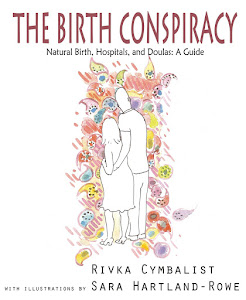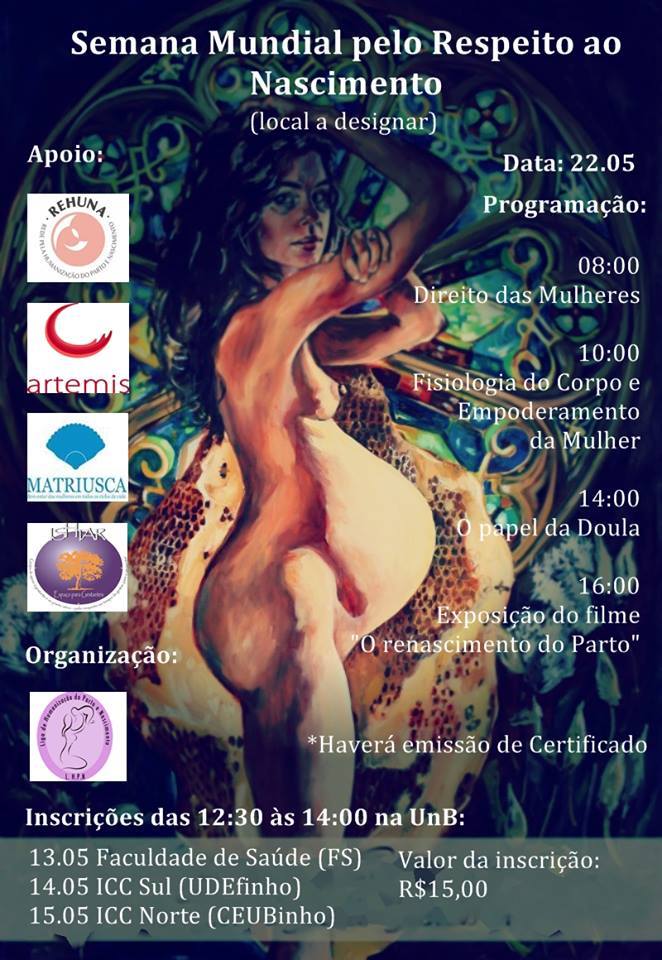 On Wednesday May 21st, during the Respectful Birth Week, at 10 am Brasilia time, our International MotherBaby Organization Board of Directors member Daphne Rattner, also the president of the Brazilian Network for the Humanization of Childbirth (ReHuNa), will speak about the laws available and the ones needed for an optimal birth for women and babies at the House of Representatives of the Federal District in Brasília, by an initiative of its president, Wasny De Roure, and the Deputy Arlete Sampaio. District and federal authorities as well as representatives of women’s organizations will be debating the proposals. During the event, the House of Representatives will honor ReHuNa for its 20 years of activist achievements.
On Wednesday May 21st, during the Respectful Birth Week, at 10 am Brasilia time, our International MotherBaby Organization Board of Directors member Daphne Rattner, also the president of the Brazilian Network for the Humanization of Childbirth (ReHuNa), will speak about the laws available and the ones needed for an optimal birth for women and babies at the House of Representatives of the Federal District in Brasília, by an initiative of its president, Wasny De Roure, and the Deputy Arlete Sampaio. District and federal authorities as well as representatives of women’s organizations will be debating the proposals. During the event, the House of Representatives will honor ReHuNa for its 20 years of activist achievements.
Do Something
Debra Pascali-Bonaro Receives Koko Roy Award
This has been a very special week for me. I was honored to keynote the New York University Midwifery Program/College of Nursing Graduation’s Blessingway. Midwives are the gatekeepers of gentle, respectful beginnings and the joy of being able to honor and inspire new midwives as they begin their careers filled me with joy. When Julia Lange Kessler, their Director gave the description of their Koko Roy Award, I was to touched by Koko Roy’s life and dedication to midwifery care. When I learned I received their Koko Roy Award, I was overwhelmed with emotion, my tears, my heart was so full as I feel so blessed to share this sacred path with so many and I am so honored to share with you!
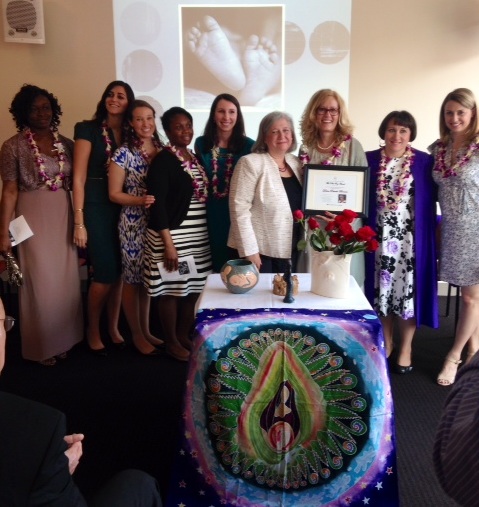
About the Koko Roy Award by Julia Lange Kessler
Background
Asoka Roy was a pioneer nurse-midwife who established this field as a profession in the United States.
She began her midwifery career in India, the country of her birth. One of eleven children, Ms. Roy was born on December 10, 1915, the daughter of a high-ranking civil servant.
Though she could have lived a leisurely life, not needing to work to support herself, she decided, instead, to become a midwife. After learning about deficiencies in maternity care in India, she realized how much mothers, babies and midwives of India needed her commitment to them. From this initial decision, Ms. Roy found that she truly loved the midwifery profession. With great energy, she devoted her entire life to the care of mothers and babies, considering each mother-to-be as a sacred individual on a nine-month journey to deliver a miracle.
Visiting war-torn villages
Her first job was in a hospital in New Delhi and she later became fully trained in midwifery, earning her master’s degree at a university in Calcutta. During the partition between India and Pakistan, she made several trips to the war-torn villages. During this period, stories are told of her courage when she risked her life to see all her midwives to safety and of her trips to the villages to deliver babies — such as twins in the mud-huts of war-torn India — when medical assistance was nowhere to be found.
After the partition, Asoka Roy broke new ground for the cause of Indian nursing, as General Secretary of the Trained Nurses’ Association of India, or TNAI. She was only the second Indian to hold this high-level ‘British’ national post and the first Indian Editor of the Nursing Journal of India.
Then, through her association with TNAI, she traveled to London to earn a midwife’s teaching certificate at the Royal College of Midwives. Before she immigrated to the United States, she was a midwifery tutor in Britain. Ms. Roy always welcomed technology as a valuable complement to the traditional skills she practiced and traveled, also, to Sweden to learn the vacuum-extraction method of delivery.
Trained midwives
Just at a time when American women were beginning to seek midwifery services, Ms. Roy earned her nurse-midwife license in New York in 1967. In 1968, she became the first director of Beth Israel Medical Center’s midwifery program, which was one of the first of its kind. Ms. Roy also taught midwifery students and medical students at the prestigious Yale University. While there, she drafted the curriculum of a course to train foreign midwives for practice in the United States. In 1983, she obtained midwifery-admitting privileges at St. Vincent’s’ Hospital and, when she retired from delivery practice in 1990, the hospital named her “Midwife Emeritus.” During this time, she became a Fellow of the American College of Nurse-Midwives.
Active after her retirement, Ms. Roy attended her last birth, her grand-niece’s, at home, at age 82 in 1998. Until nearly the end of her life, she was involved in developing the Beth Israel midwifery archives.
Throughout her career, Ms. Roy delivered more than 5,500 babies. In a 1983 article in The New York Times, Ms. Roy explained her approach this way: “I consider that the woman delivers the baby, not a midwife or obstetrician.”
Affectionately called ‘Koko” by her friends and family, she died on June 22, 2001 at the age of 85. In her memory, “Koko Roy Award” has been instituted to recognize an individual’s contribution to women’s health. Her story is an inspiration to all Indian nurses and to the global nursing and midwifery community.
Ms. Asoka Roy was one of those fortunate women of pre-independent India, who had access to the highest education and a life of wealth and privilege. Yet, she used her education to devote her life to the care of mothers and babies and toward the improving her profession and inspiring her students and colleagues.
Her New York Times Obituary closes with these words: “Her departure represents a great loss to the international midwifery community. Her spirit will live on for many generations.”
Julia Lange Kessler
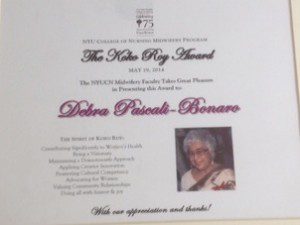
Excerpts to be published from Debra’s NYU keynote speech- sign up for Debra’s enews & be the first to hear.
This March Stand and Deliver!
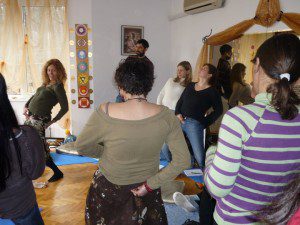 This week I enjoyed sharing my passion for Human Rights in Childbirth at New York University (NYU) with midwifery, nursing and law students. It is an honor to take students around the world with images and stories of current human rights movements and point out all the ways that our current broken maternity care system violates women’s rights to evidence based care and informed decision making even here in NYC. Of course if you know me, I don’t like to dwell on the negative, I like to share what is possible and look at models that get it right! I hope to inspire you to action as together we can change and engage everyone in a healthy maternity model. In doing that I love to site my favorite birth slogan “Stand and Deliver – Don’t Take it Lying Down!!”
This week I enjoyed sharing my passion for Human Rights in Childbirth at New York University (NYU) with midwifery, nursing and law students. It is an honor to take students around the world with images and stories of current human rights movements and point out all the ways that our current broken maternity care system violates women’s rights to evidence based care and informed decision making even here in NYC. Of course if you know me, I don’t like to dwell on the negative, I like to share what is possible and look at models that get it right! I hope to inspire you to action as together we can change and engage everyone in a healthy maternity model. In doing that I love to site my favorite birth slogan “Stand and Deliver – Don’t Take it Lying Down!!”
It’s so hard for me to consider how we have literally put women down. Science shows us all the benefits of moving in childbirth and birthing using gravity. Gravity works! By putting women down, labor is longer, more painful, increases use of oxytocin/pitocin, epidurals and decreases pleasure.
This week Vicki Elson, another filmmaker whose work I have enjoyed showing how the media influences our perceptions of childbirth in her great documentary Laboring Under and Illusion, shared Sharon Muza article published in Science and Sensibility. Sharon compared Lamaze Healthy Birth Practices with the realities reported in Childbirth Connection’s 2013 Listening To Mothers III Report, a survey of 2400 U.S. mothers. For Lamaze’s Healthy Birth Practice 2: Walk, Move Around and Change Positions in Labor.
Only 43% of women walked around after being admitted to the hospital and
Only 40% used movement or position changes as a form of non-pharmacological pain relief.
I will address this more in the future as we know leaning forward and moving offers comfort and can shorten labor.
Lamaze Healthy Birth Practice 5 States: Avoid Giving Birth on Your Back and Follow Your Body’s Urges to Push. It is so sad to learn that 68% of American women gave birth on their backs. This is crazy! When you wonder how birth can be pleasurable, it’s hard to find pleasure or comfort when women who want to stand are treated as they are crazy and our broken system puts pressure on you to conform to outdated practices, takes your power and often your voice away from you on a day that has the ability to be full of power, pleasure and possibilities.
Let’s start a facebook and twitter storm of powerful birth quotes and slogans.
Join me in creating a list of quotes that speak up and stand for women’s right to a blissful, transformative, pleasurable birth. Share you tweet and tag us with the hashtag #OrgasmicBirth
Can Birth Films Really Can Change The World?
Submitted by Toni Harmon
Films don’t change the world. It’s people that change the world.
If people get behind a film, then it can achieve incredible things. It can change opinions. It can inform, educate, inspire, empower and yes, it can change the world.
Take three birth documentaries ORGASMIC BIRTH, THE BUSINESS OF BEING BORN and our previous film, FREEDOM FOR BIRTH. By connecting with a wonderfully supportive audience, these films became powerful. They changed the face of birth around the world.
Before ORGASMIC BIRTH, did you know that it was even possible to have an ecstatic birth? Before THE BUSINESS OF BEING BORN, did you realise the extent of the economic interests that impact maternity policy in the US?
Before FREEDOM FOR BIRTH, did you know about human rights in childbirth? Had you heard of Agnes Gereb, the Hungarian midwife imprisoned for attending home births? (Just in the last few days, there’s wonderful news with Agnes’ case – she has been released from house arrest although there’s more court cases still pending).
I believe films can be more powerful than books, blogs and newspaper articles. Films can break through into the mainstream, attract global media attention and influence decision-makers to bring about change.
Take FREEDOM FOR BIRTH. When we released the film in September 2012, over 100,000 people saw the film on one day. The issue of human rights in childbirth was catapulted into the mainstream media resulting in hundreds of newspaper articles, blogs, radio and TV news features. And why did this happen? Because a global community of over 1,000 extraordinary people supported the film by holding a world premiere screening.
Now change is starting to happen. Women’s birth rights is now firmly on the agenda. In the UK, the Royal College of Obstetricians and Gynaecologists is holding a training event on 7th March for International Women’s Day 2014 called ‘Human rights awareness in women’s health’. And one of the talks at RCOG World Congress 2014 Conference Committee in Hyderabad, India at the end of March is on ‘Obstetric violence and human rights’. Whether this is directly down to FFB – who can say. I’d like to think our film may have played a part.
Our next film, MICROBIRTH is a feature-length documentary looking at the latest science asking if medical interventions in childbirth could be damaging the long-term health of our children with consequences for the whole of mankind.
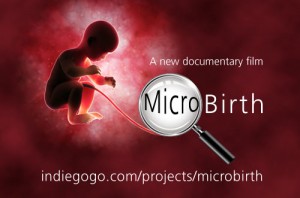 Just like we did with FREEDOM FOR BIRTH, we want to release MICROBIRTH with a huge global simultaneous screening event this September. In this way, we want to grab the attention of the world’s media, policy-makers and all healthcare providers so that everyone becomes aware of the potential long-term risks of interventions.
Just like we did with FREEDOM FOR BIRTH, we want to release MICROBIRTH with a huge global simultaneous screening event this September. In this way, we want to grab the attention of the world’s media, policy-makers and all healthcare providers so that everyone becomes aware of the potential long-term risks of interventions.
But for the film to become a powerful tipping point that inspires real change, we need you. And thousands of strong-willed, strong-minded individuals just like you.
So, can a birth film really change the world? No. But with your help, yes we can!
Please consider holding a world premiere screening of MICROBIRTH this September. Make it a rallying point for change. Then together, we can and will change the world.
To secure a screening, choose one of MICROBIRTH premiere perks on our Indiegogo fundraising campaign website http://www.indiegogo.com/projects/microbirth.
* * *
 After training at the London Film School, Toni Harman worked as a producer / director making factual programmes, documentaries, short films and even a feature film. Then she had a baby and everything changed!
After training at the London Film School, Toni Harman worked as a producer / director making factual programmes, documentaries, short films and even a feature film. Then she had a baby and everything changed!
Together with her partner Alex Wakeford, Toni started making films about birth including DOULA! (http://doulafilm.com) and FREEDOM FOR BIRTH (http://freedomforbirth.com). Their new film MICROBIRTH will be released this September. (http://www.indiegogo.com/projects/microbirth).
Together, Toni and Alex founded ONE WORLD BIRTH with one objective: to make films to make birth around the world.
You can contact Toni via ONE WORLD BIRTH’s Facebook page http://facebook.com/oneworldbirth and on Twitter @oneworldbirth or via the ONE WORLD BIRTH website http://oneworldbirth.net.
Join Debra in Italy this summer for Pleasures of the Amalfi Coast Women’s Retreat
The Time is Now! Doulas Reconnect The Circle of Support
Coming home from Teaching a great birth doula workshop at the University of Pennsylvania where I have been teaching nursing, midwifery, medical, anthropology, women’s studies students, and community members for over 13 years, I always feel blessings and gratitude to see so many young students sharing a passion to transform maternity care. This weekend was so exciting as we shared our passion for doulas and the many ways that including respectful, loving care will transform, not only our broken maternity care system, but the lives of MotherBaby, Father, partner, family’s and community’s.
* * *
Are you wondering what is a doula and why should I have one?
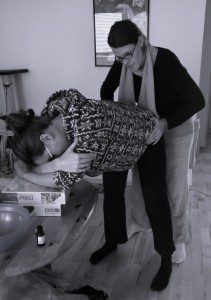 Doulas are women who support women and their families during pregnancy, birth and postpartum. Her-storically women supported women in childbirth and passed along time tested comfort measures, nurturing and massage that helped make birth easier, shorter and as we are learning from science; safer and more satisfying. Childbirth was a social event that took place in family’s homes. When birth moved to hospital it became a medical event which while we have had benefits from our technology, the loss of support from other women often makes birth longer and harder. Many of our mother’s and grandmothers labored all alone, by breaking the circle of support of women, we lost traditional wisdom and with it the knowledge of natural comfort measures. Lying on our backs, having to endure physical activity without food and drink has made birth more challenging, frightening, and painful. It’s hard to imagine when all you know is the system of fear and pain that saves women with medication and surgery what birth can look like if we truly offer women and their partners a full range of comfort measures and the nurturing support that we know can help you to reduce interventions and have an easier more satisfying birth taking you from pain to power.
Doulas are women who support women and their families during pregnancy, birth and postpartum. Her-storically women supported women in childbirth and passed along time tested comfort measures, nurturing and massage that helped make birth easier, shorter and as we are learning from science; safer and more satisfying. Childbirth was a social event that took place in family’s homes. When birth moved to hospital it became a medical event which while we have had benefits from our technology, the loss of support from other women often makes birth longer and harder. Many of our mother’s and grandmothers labored all alone, by breaking the circle of support of women, we lost traditional wisdom and with it the knowledge of natural comfort measures. Lying on our backs, having to endure physical activity without food and drink has made birth more challenging, frightening, and painful. It’s hard to imagine when all you know is the system of fear and pain that saves women with medication and surgery what birth can look like if we truly offer women and their partners a full range of comfort measures and the nurturing support that we know can help you to reduce interventions and have an easier more satisfying birth taking you from pain to power.
What a doula does?
A doula supports mothers, fathers, families and partners to experience birth as whole, honoring that birth involves Body Mind and Spirit. We often forget how- what our mind sees our body feels. I believe by cutting birth off from the rest of our lives we have lost touch with how much our emotions and our spiritually effects our bodies. Think about when you feel stressed, do you feel it in your body? Your hormones change. Enter the Doula! Just as women who live together – have their menstrual cycles come together, we are beginning to understand that women help other women to lower stress and secrete the essential hormone of calm, connection and childbirth called oxytocin. So having another woman at your birth is not just nice, it actually affects your hormones and even a wonderful male with all their nurturing will not have the same affect as a female offering continuous support. So that’s not to say then that he shouldn’t be present, we actually know that when a doula is there to support both of you, you both will be more satisfied and often enjoy even more love and nurturing.
What else do Doulas do?
A Doula offers: touch, acupressure, counter pressure, and a toolkit of position that actually help the baby to rotate and can often help make labor shorter and easier. One of my favorite tools is a Rebozo, a Mexican shawl. Doulas learn how to wrap and rock a MotherBaby. Think of how we swaddle and rocked the baby and how soothing that feels, imagine how it feels when you are wrapped with a warm embrace and gently move to help your baby find its way through your body.
Doulas help create what I call birth ambiance, to help you feel safe, private and relaxed with music, lighting, smells, art, images… doulas help you to create sacred space so that you can relax and open.
Doulas help you to advocate and understand all the choices you have so that you receive informed collaborative decision-making with your caregiver, understanding and choosing what is best for you and your baby
Doulas honor that birth is an emotion and spiritual journey. Doulas help you welcome you baby with respect, love and sacredness.
Why is the time now?
February 19, 2014, The American College of Obstetricians and Gynecologists released a very important consensus statement for the safe prevention of cesarean delivery, there were many key findings that when implemented will not only reduce the overuse of major surgery in childbirth, but it will reduce the sadness and trauma that many women experience, and help birth to return to the joyful blissful state that it should and could be.
I won’t go into details of all the recommendations but the one that has me the most excited, yes you guessed it – here is what they say about doulas:
Published data indicate that one of the most effective tools to improve labor and delivery outcomes is the continuous presence of support personnel, such as a doula. A Cochrane meta-analysis of 12 trials and more than 15,000 women demonstrated that the presence of continuous one-on-one support during labor and delivery was associated with improved patient satisfaction and a statistically significant reduction in the rate of cesarean delivery. Given that there are no associated measurable harms, this resource is probably underutilized.
Yes, Underutilized for sure, but now for long. With the many benefits of a doula, as the late Dr. Kennel said, “If a doula were a drug, it would be unethical to with hold her!”
To learn more about doulas, read DONA International’s standard of practice, and to find a doula visit www.dona.org
Watch ABC News report on “New Medical Warning From the Nation’s Top Doctors on C-Sections.”
Enjoy Lamaze’s Blog from Judith Lothian Safe Prevention of the Primary Cesarean Delivery: ACOG and SMFM Change the Game http://www.scienceandsensibility.org/?p=7958
Or to Access the full ACOG Consensus statement http://www.acog.org/Resources_And_Publications/Obstetric_Care_Consensus_Series/Safe_Prevention_of_the_Primary_Cesarean_Delivery
Join me for more nuggets as I plan to video blog more about ways you can move from pain to power in childbirth and beyond!
Ina May Gaskin & Safe Motherhood Quilt Project
In this short video Ina May Gaskin speaks about the Safe Motherhood Quilt Project. Debra recorded this video on Mother’s Day 2013 in PA. It is time we all speak-out and speak-up, join Ina May at: http://rememberthemothers.
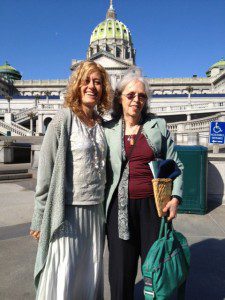
For additional background and information, please review these excerpts from Amnesty Internationals Deadly Delivery Report.
“The USA spends more than any other country on health care, and more on maternal health than any other type of hospital care. Despite this, women in the USA have a higher risk of dying of pregnancy-related complications than those in 49 other countries, including Kuwait, Bulgaria, and South Korea.
African-American women are nearly four times more likely to die of pregnancy-related complications than white women. These rates and disparities have not improved in more than 20 years.
Maternal deaths are only the tip of the iceberg. During 2004 and 2005, more than 68,000 women nearly died in childbirth in the USA. Each year, 1.7 million women suffer a complication that has an adverse effect on their health.
This is not just a public health emergency — it is a human rights crisis. Women in the USA face a range of obstacles in obtaining the services they need. The health care system suffers from multiple failures: discrimination; financial, bureaucratic and language barriers to care; lack of information about maternal care and family planning options; lack of active participation in care decisions; inadequate staffing and quality protocols; and a lack of accountability and oversight.”
Another global initiative to reduce maternal mortality and highlight women’s rights in childbirth is www.whiteribbonalliance.org/
Join us as we vision and are working to heal our broken maternity care system. Every MotherBaby deserves respectful loving care. Together we are making a difference. Share your thoughts and let’s remember all mothers.
Please add your stories here, have you experienced a human rights violation in the care you received?
Childbirth Connection Press Release
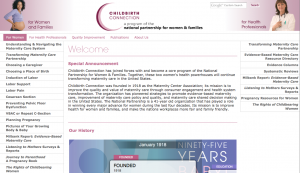 Today I want to share this Press Release from Childbirth Connection. I have been a board member of Childbirth Connection for years and always cite their website in my workshops and classes, as well as share their herstory in my Introduction to Childbirth.
Today I want to share this Press Release from Childbirth Connection. I have been a board member of Childbirth Connection for years and always cite their website in my workshops and classes, as well as share their herstory in my Introduction to Childbirth.
News Release
Contact: Ashley Schapitl
January 23, 2014 202/986-2600
Two Organizations Dedicated to Improving Women’s Health Join Forces
Childbirth Connection Becomes Program of National Partnership for Women & Families
WASHINGTON, D.C. – Two powerhouses that have been working for decades to improve the health of women, moms and families announced today that they have joined forces, with Childbirth Connection becoming a core program of the National Partnership for Women & Families. Childbirth Connection was founded in 1918 as the Maternity Center Association; its mission is to improve the quality, value and outcomes of maternity care through consumer engagement and health system transformation. The organization has pioneered strategies to promote safe, effective and satisfying evidence-based maternity care and is a powerful voice for childbearing families. The National Partnership is a 41-year old organization that has played a role in winning every major advance for women during the last four decades. Its mission is to improve health for women and families, and make the nation’s workplaces more fair and family friendly.
“We are thrilled to be joining forces with Childbirth Connection, and convinced that, together, we will be able to do even more to improve maternal and child health in this country,” said Debra L. Ness, president of the National Partnership. “These two organizations have been close allies for years. We look forward to working even more closely in the years ahead to transform our country’s health care system in order to improve women’s reproductive health, strengthen the quality and outcomes of maternity care, and give all children in the United States the safe and healthy start they deserve.”
“Childbirth Connection has been breaking new ground for women’s health since 1918, improving the quality and outcomes of maternity care,” agreed Maureen Corry, executive director of Childbirth Connection. “We have worked hand-in-hand with the National Partnership to reform our health care system, make care more affordable, improve women’s access to high-quality reproductive health and maternity care, help women navigate our health care system, prohibit insurers from considering pregnancy a pre-existing condition, promote public reporting of quality measures, and more. Combining the National Partnership’s track record of advocacy for reproductive and women’s health with Childbirth Connection’s advocacy for high-quality maternity care and maternity care shared decision making will allow us to do even more to improve women’s health. We see this as a perfect match and are excited about expanding our collective impact and reach together.”
The National Partnership has strong relationships with policymakers at all levels. Childbirth Connection has deep roots in the clinical and research communities. Both organizations work directly with women and families to advance the goals of better access, better care, and better outcomes.
“This is a time of great opportunity,” Ness added. “Our health care delivery system is changing and there is broad awareness among policy makers, health care providers, payers and consumers that improving outcomes for moms and babies must be a priority. Together, we will be more effective in promoting high quality, affordable, accessible health care for women and their families throughout the lifespan.”
Next week, the National Partnership will release “Listening to Mothers: The Experiences of Pregnant Women in the Workplace” – an issue brief reporting findings from the Childbirth Connection 2013 survey, Listening to Mothers III: New Mothers Speak Out. It looks at pregnant women’s experiences with discrimination in the workplace – an issue the National Partnership has worked on for decades.
This spring, the organization will issue a new version of “The Rights of Childbearing Women.”
To learn more about Debra’s online childbirth classes please sign-up for her enews.
Doula Program Advocates for Refugees Experiencing Racism at Birth
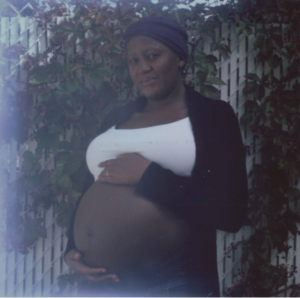
“The purpose of the Montreal Birth Companions is twofold: to provide low-income or otherwise disadvantaged women with free doula services and to train “peer doulas” within the ethnically or culturally isolated areas of our city to provide doula support for the women in their communities.” – MBC
Community doula programs are very close to my heart and that is why I am so grateful for the work Montreal Birth Companions is doing. In Montréal, Quebec, recently “changes to refugee health care put women and babies at risk.” In this blog, Chesley Walsh shares a little about those challenges. To read more on the topic, please read Rivka’s full article: Undocumented Labor. Join Rivka and I co-teaching in Montréal (you can be local or travel in) by please visiting the events page.
Birth can be a daunting and solitary experience for many women. Navigating medical systems, choosing your birth experience and learning about the miracles of change can both edify and overwhelm us. But imagine experiencing all of this in a new and foreign country, without family, without friends and without adequate knowledge of the systems that surround you. These women, refugees and new immigrants, are often fleeing their home countries under duress, leaving behind the familiar in exchange for the safety of their little ones.
The Montréal Birth Companions is a volunteer doula service, organized and operated by Rivka Cymbalist in Montréal. Rivka began her practice as a doula some twenty years ago, attending hundreds of births along the way and bringing her deep knowledge and calming presence to every delivery room. Over time she saw a sharp difference in services for the less fortunate members of her community, and she decided to begin a volunteer doula service of her own.
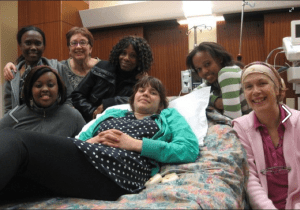
The volunteer doulas of the Montréal Birth Companions hail from diverse backgrounds, some trained by Rivka and others with training elsewhere; however, every volunteer doula comes with a passion to empower and nurture mothers through their birth experience, regardless of class or origin.
The results can be wonderful to behold, but there are frightening realities to face. Often, within the closed walls of a hospital birth, the question of refugee insurance or lack thereof becomes a barrier to adequate service. Racism, classism and xenophobia play a role in services rendered, particularly with regard to bedside manner. In situations like this, the role of the “advocate” doula can be extremely helpful and important for the mother.
Did racism, classism and xenophobia play a role in services you received at the birth of your baby, particularly with regard to bedside manner? Please share your story with us here.
To join Debra and Rivka at the workshop please visit the events page.
__________________________________
In 2013, Ibu Robin Lim of Bumi Sehat Bali visited Montreal Birth Companion. Here is a great little skit she improvised with Montreal Birth Companions on different birth scenarios, doctor or midwife assisted. It is entertaining and informative. Cayenne Pepper comments: “Great little skit… education is so powerful when entertaining.” Enjoy!
Rivka Cymbalist is author of The Birth Conspiracy written for doulas and pregnant women. “She brings an awareness of labor and birth as a process that cannot be separated into parts and is unique for each individual into the framework of modern obstetrics, which creates stages and phases and demands that all women labor in the same way.”
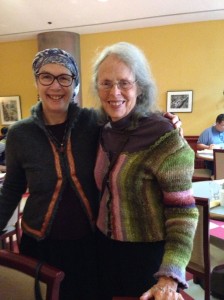
To join Debra and Rivka at the workshop please visit the events page.


